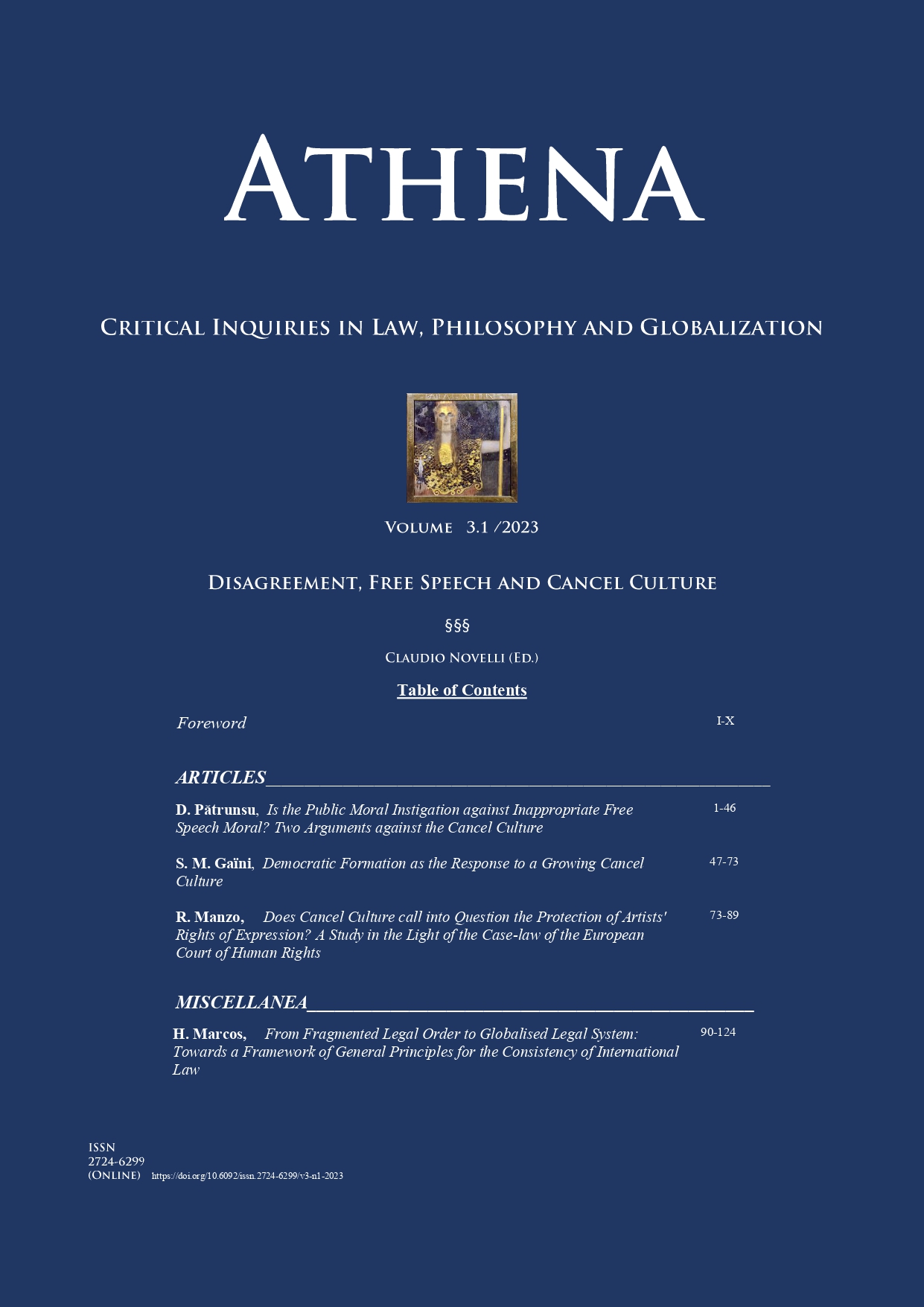Is the Public Moral Instigation Against Inappropriate Free Speech Moral? Two Arguments Against the Cancel Culture
DOI:
https://doi.org/10.6092/issn.2724-6299/15655Keywords:
cancel culture, democracy, freedom of expression, hate speech, value-pluralismAbstract
My aim in this article is to show that cancel culture is self-contradictory, being defeated by the very stakes behind it. The fundamental objection is that the prohibition of hate speech parasitizes free speech and political freedom, contributing to the extension of the state's discretionary power over individuals by blocking any free and reciprocal interaction between individuals, not just the aggressive or potentially conflicting one through public discourse. The first argument against cancel culture is called the functionalist argument. Through this argument, the aim is to identify the problems of functionality, and the crux of objection is the low probability of diminishing hate and aggressive thoughts among individuals. The second argument against cancel culture is called the legitimacy argument. The crucial objection here is the very assumption that democracy could be more than something that hopes for “reconciling divergent interests” or expanding “environmental acceptability.” This assumption is false, even if it is attractive; therefore, cancel culture is not only dysfunctional but also illegitimate. In conclusion, in light of the above arguments, the activation of cancel culture through various operationalizations comports high risks endangering not only democratic pluralism but even the possibility of being free.
Downloads
Downloads
Published
How to Cite
Issue
Section
License
Copyright (c) 2023 Dorina Pătrunsu

This work is licensed under a Creative Commons Attribution 4.0 International License.





